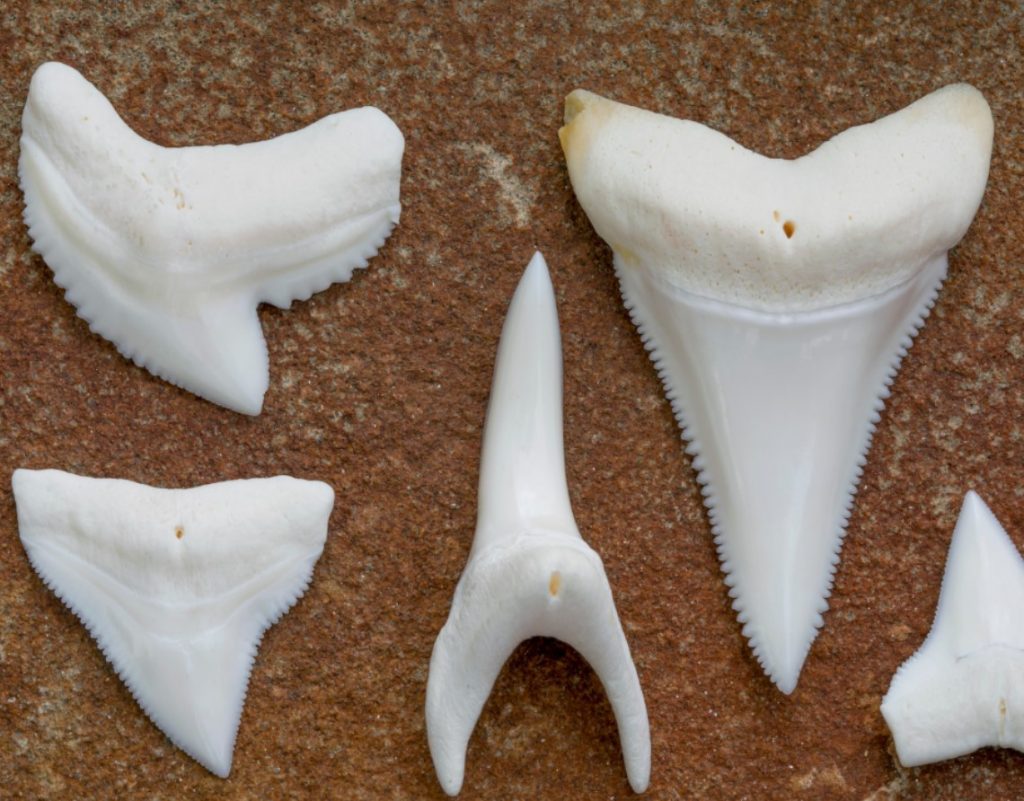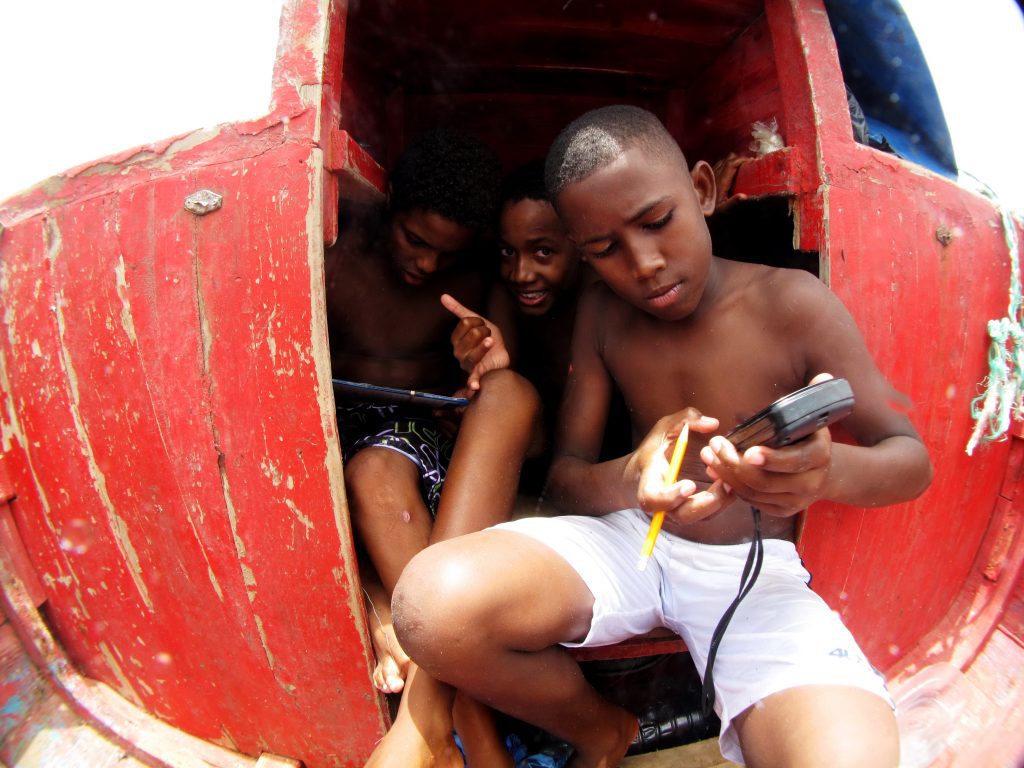
Learning to use a Global Positioning Service device and accurately recording field data are some of the many skills that students receive during the Mnine d’Mar course.
It’s dawn when Mohammed wakes up in the Barraca (Portuguese for slum) where he lives in the back of Sal Rei, the capital of Boavista, Cabo Verde. He can just catch sight of the ocean glinting in the morning light beyond the saltpan as he finds a quiet spot on the edge of the slum to do his necessities. Although the small desert island of Boavista is surrounded by the Atlantic Ocean, most of the people living in the Barraca, where Mohamed lives, rarely get the chance to swim and many only know the animals living there when they are served up on a plate.
The arid climate in Boavista means people are dependent on the surrounding ocean for food, and living costs are high, as nearly everything else has to be imported. Additionally, house prices are inflated by the surging tourism industry, meaning many families cannot afford to rent. As a result, although there are only 15,000 people on the island, barracas (slums, lit. ‘huts’) comprise nearly half the population.
For many of people living in the Barraca the choice is simple – either work in the hotels or become a fisher. As growing tourism, drives further population growth from continental Africa, the sea is inevitably coming under greater pressure. And sharks, which are still viewed by many as the monsters perpetuated by Hollywood, are some of the first species to disappear. There is empathy driven by misperception. The irony is, it’s these maligned predatory species, which maintain fish and even ecosystem health and, losing them is likely to impact the small-scale fisheries on which these people depend.
It is in this context that we began our Mnine d’ Mar educational project, to strengthen the connection between local children and the ocean with a focus on sharks and rays. The program has provided us with great opportunity to raise awareness and breakdown common misperceptions at an early age. In doing so we hope to build a generation that values sharks and rays for their role in the marine environment and who can benefit directly from their survival.
The program runs across three days, developing from a classroom environment, to experiential in-situ learning and ultimately culminating with practical sessions at sea. The first day sets the scene, using a combination of theoretical, interactive and practical learning; we encourage participation and try to steer towards group discussions, games and interactive activities.
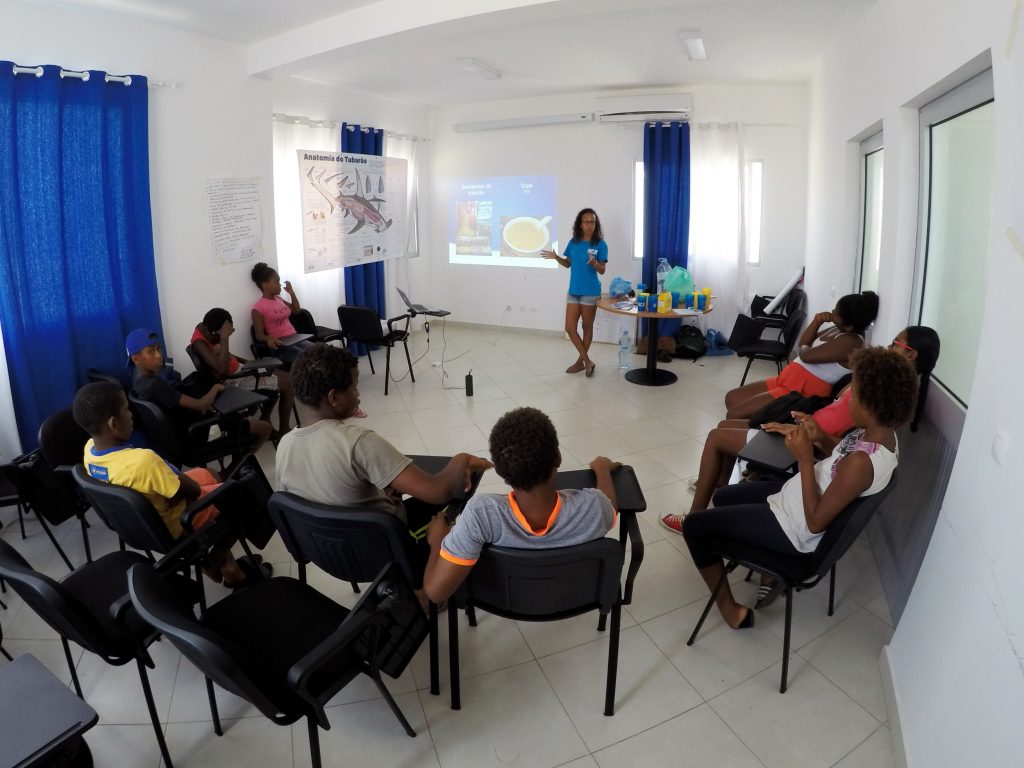
On the second day, in the shadow of an acacia on the beach, we discuss perceptions, environmental issues and marine conservation putting it in a local context. On the third day, we take the kids to sea to conduct scientific monitoring in the bay next to the city, using UVS (underwater visual census) snorkeling and BRUVs (baited remote underwater videos). On the one hand, it is a chance for the kids to explore the marine realm with their own eyes, something many on the island rarely, if at all, get the chance to do. On the other, it allows them to get to ‘know’ their local species and establish a connection something essential if empathy is to be surpassed and conservation is to be successful.
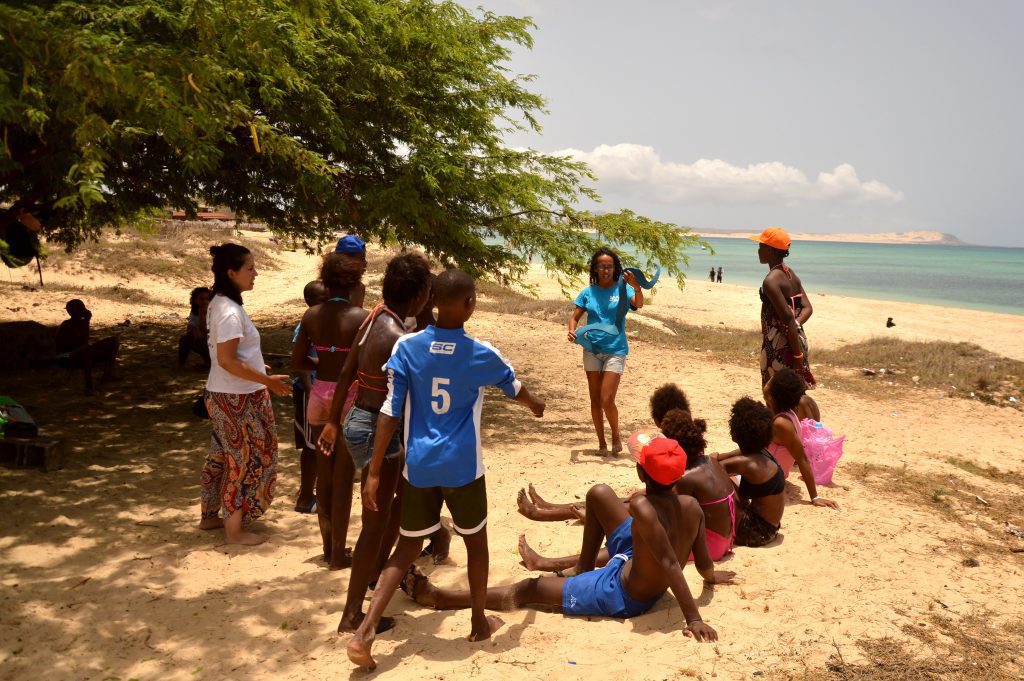
Cintia Lima orients the students on the beach of Boavista during one of the Mnine d’Mar training exercises
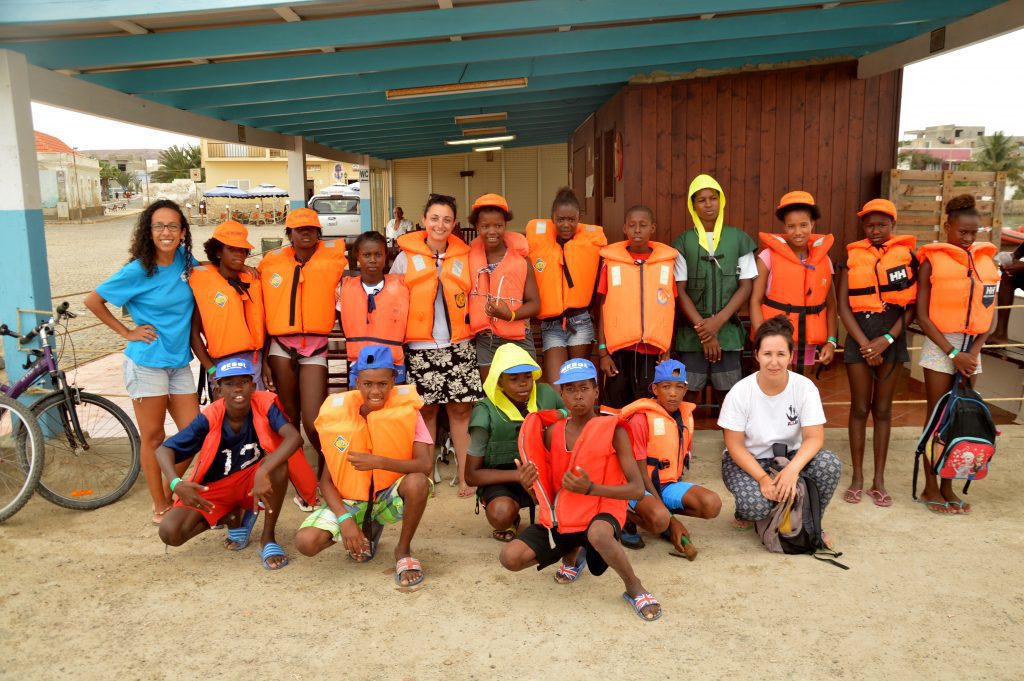
The Menin’ de Mar Class of 2017 at the ready for the marine component of their course led by Cintia Lima (in blue)
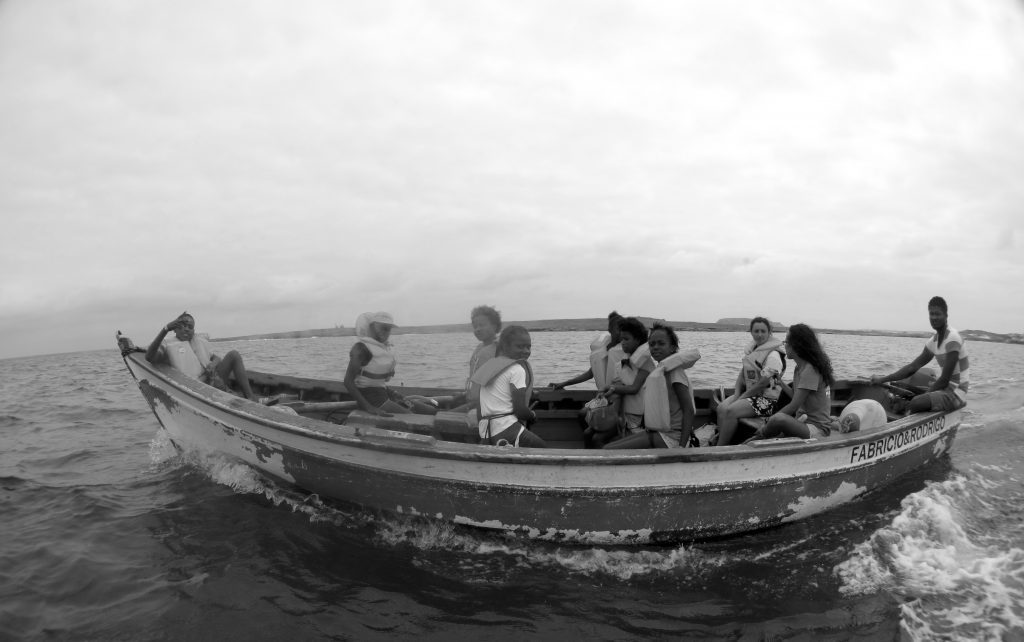
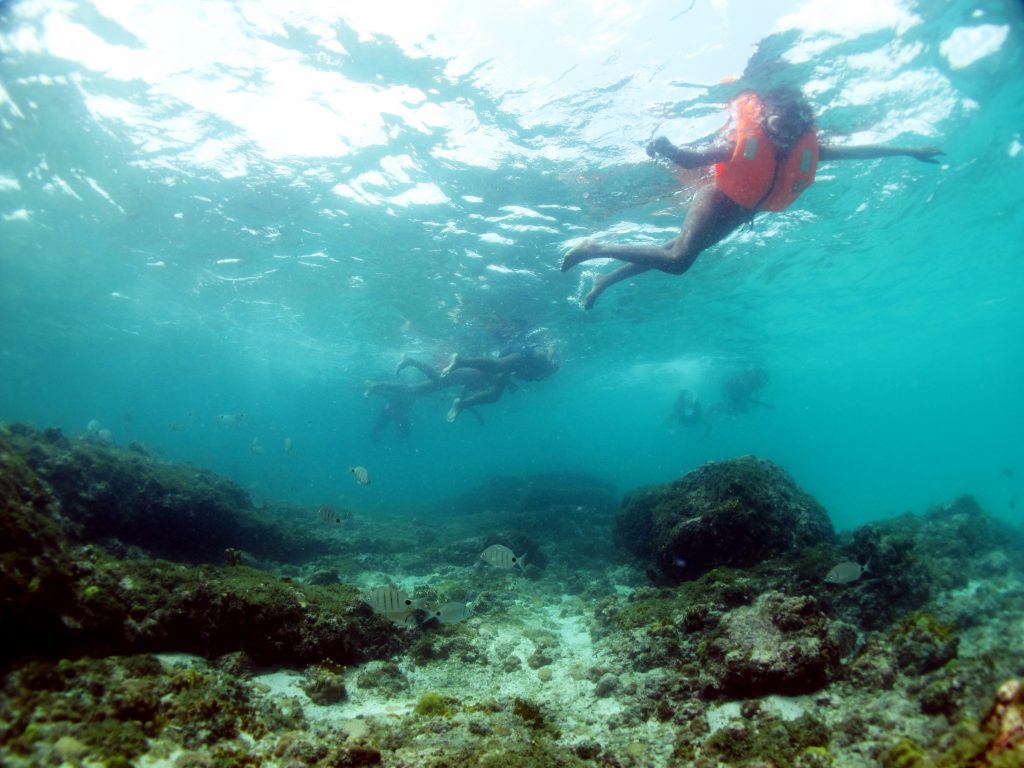
Time to apply all the classroom based learning to the work on the sea monitoring fish for species diversity and abundance.
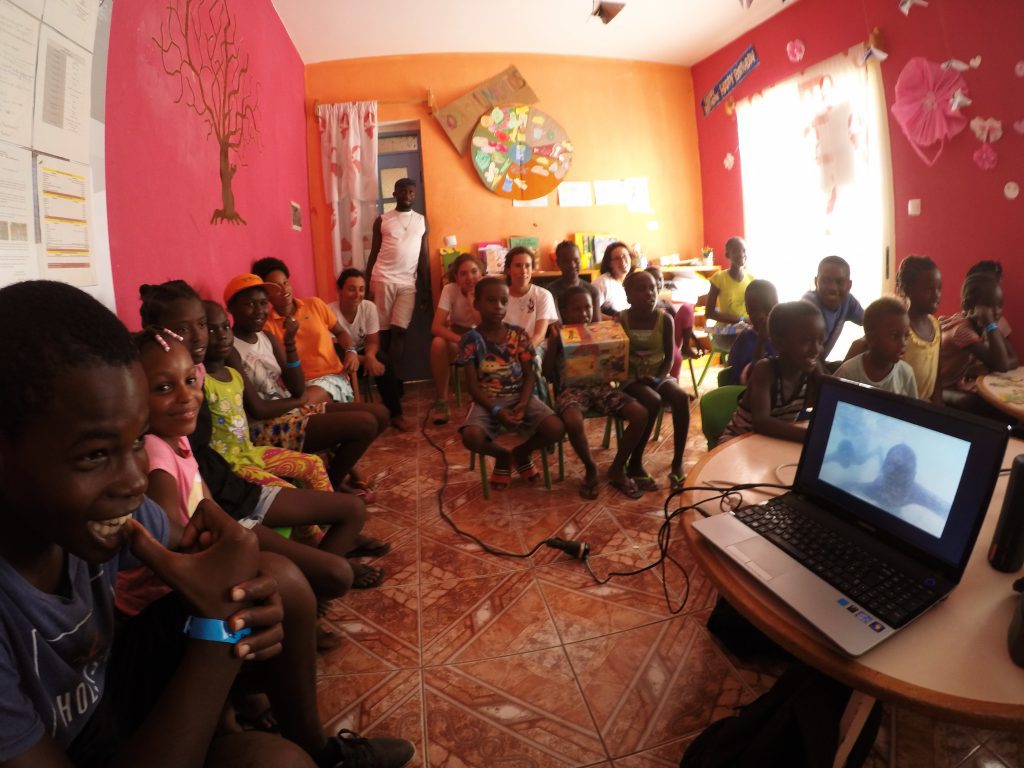
Mohammed grins while watching himself swim underwater along with family members as part of the follow through post marine training in the Mnine d’ Mar program
By providing knowledge and first hand experience we hope to captivate an interest in marine ecology and encourage thinking about conservation and sustainable management of marine resources, something extremely pertinent in Boavista, where the Sahara meets the sea. We envisage a future where big fish and sharks thrive and in which people like Mohammed benefit from their conservation, if not directly then at least from the knowledge that this wildlife exists and helps keep the oceans healthier. By raising awareness and cultivating skills for science at an early age we hope to build the foundation and a professional demand for marine science and conservation in Cabo Verde and create a generation connected to the sea that surrounds them and the sharks and rays that live there.
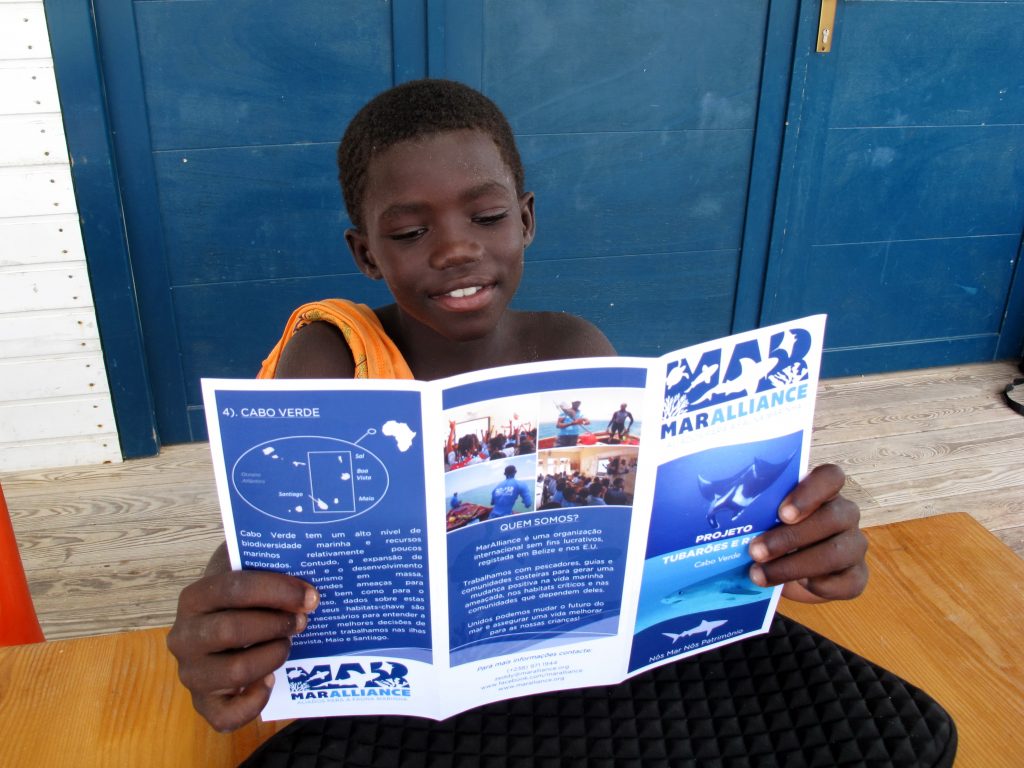
Kevin dos Santos (aka the future of sharks in Boavista) learning some cool shark and ray facts.
